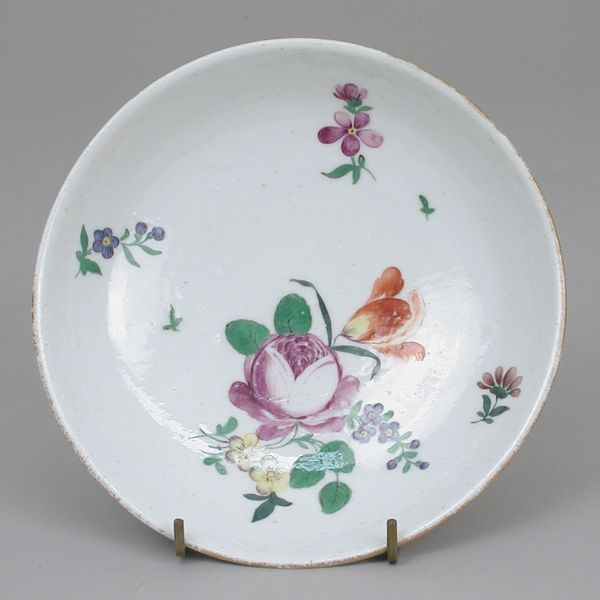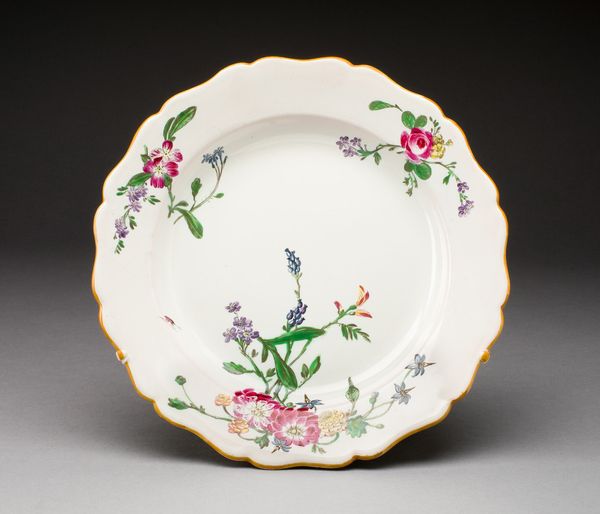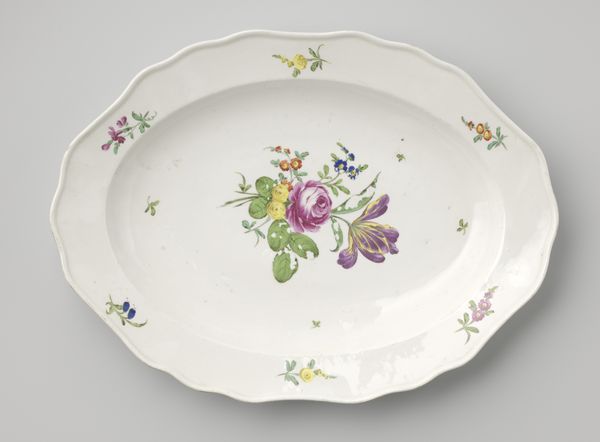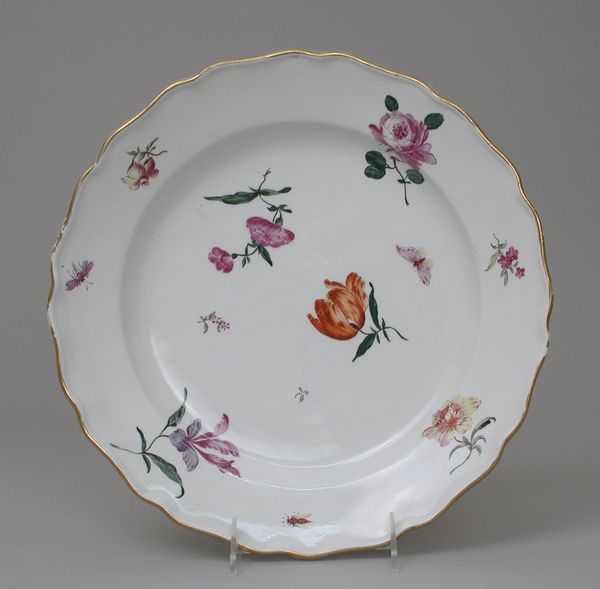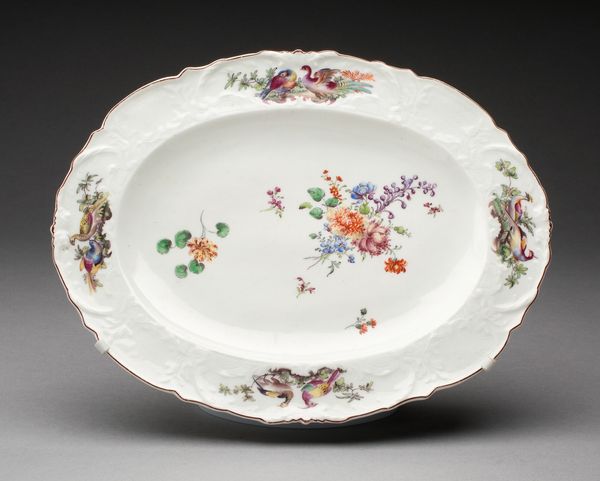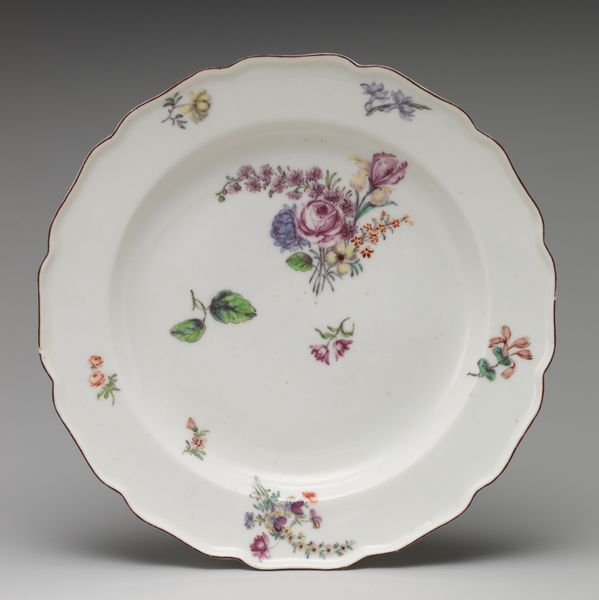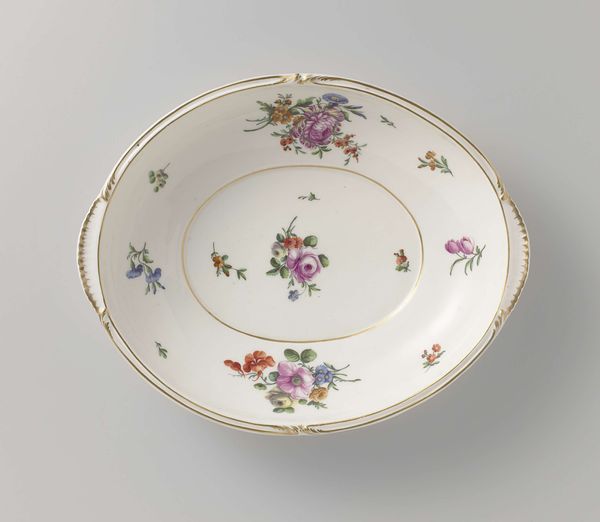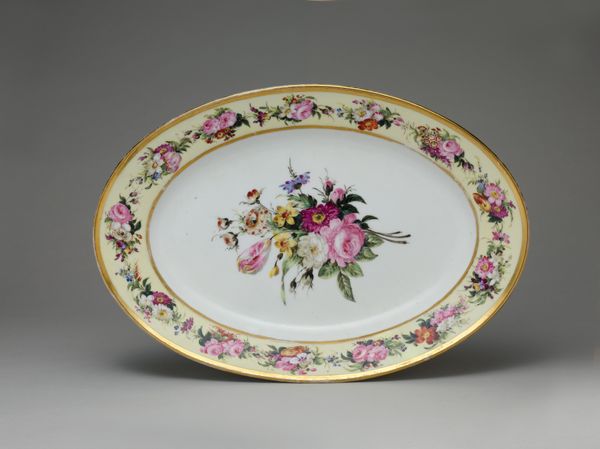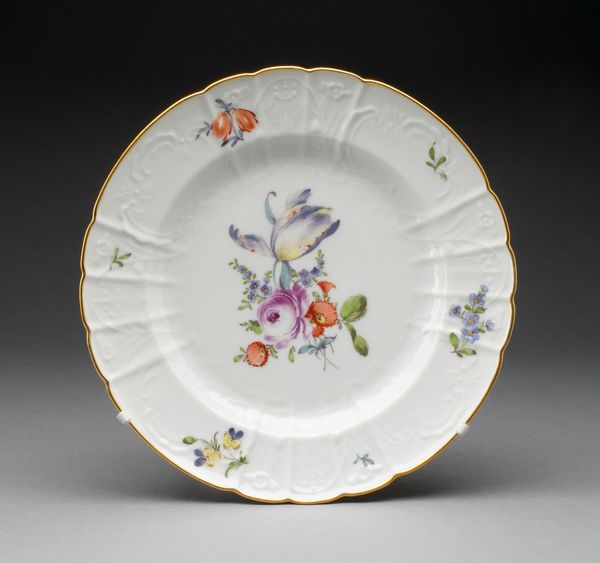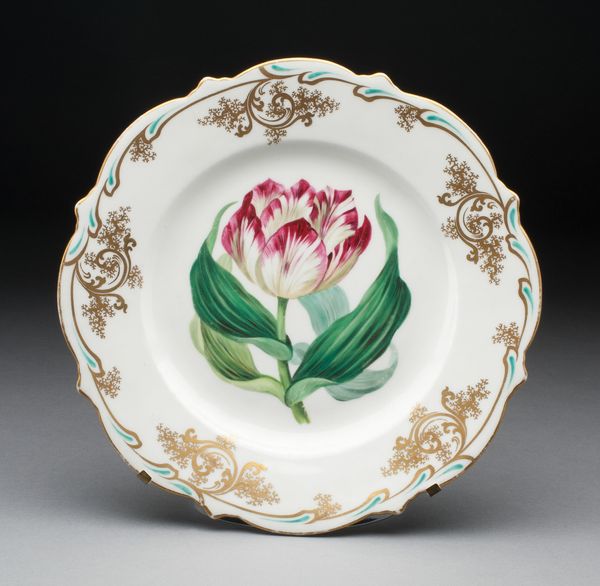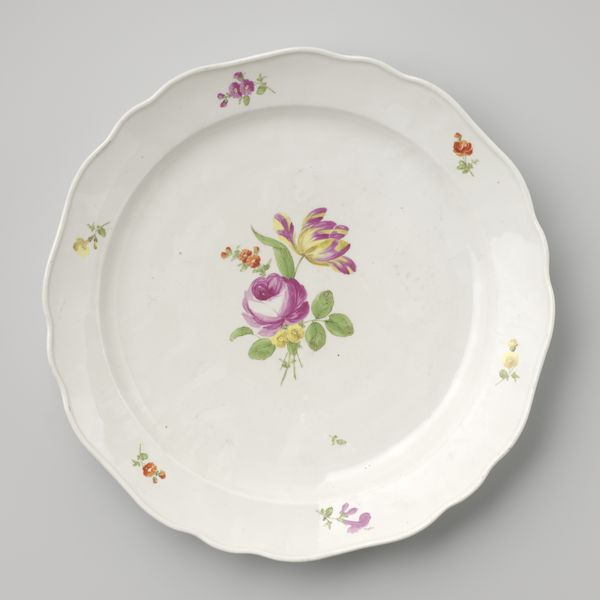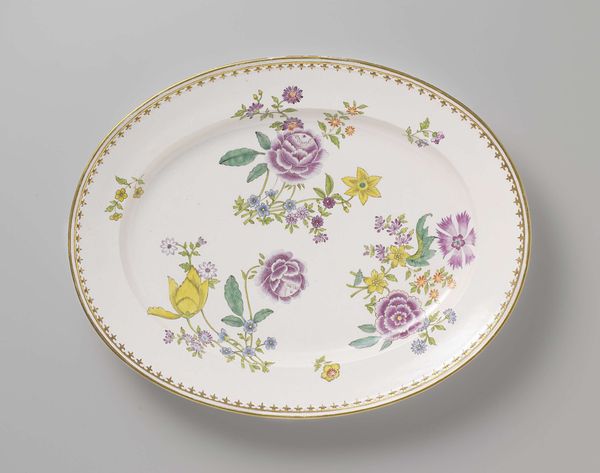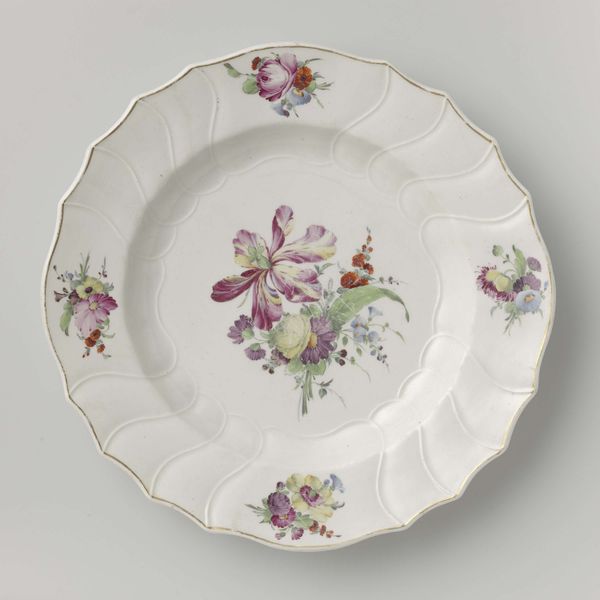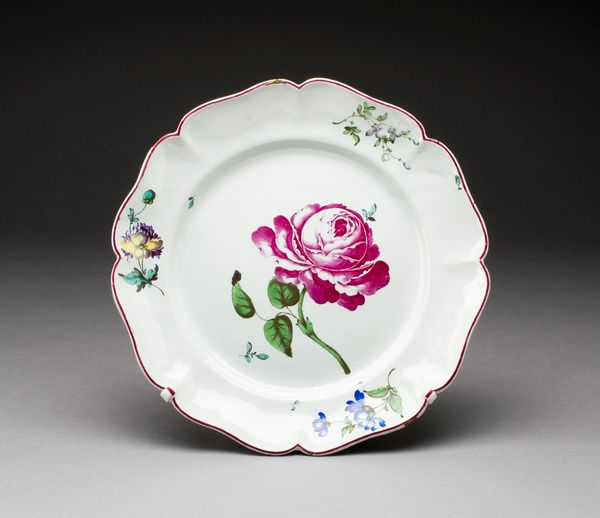
ceramic
#
ceramic
#
ceramic
#
decorative-art
#
rococo
Dimensions: 1 1/8 x 9 5/8 x 9 5/8 in. (2.86 x 24.45 x 24.45 cm)
Copyright: Public Domain
This plate was made by Joseph Hannong sometime in the late 18th or early 19th century out of tin-glazed earthenware. Hannong was part of a family of potters who were based in Strasbourg, France. His factory produced luxury goods for the aristocracy and the emerging bourgeoisie. With the French Revolution, the factory was forced to produce more utilitarian wares. The decoration of the plate is in the style of floral painting that was popular at the time, reflecting the influence of botanical illustration and the vogue for gardens and natural history. However, the plate can also be seen as a status symbol. Owning decorative plates signaled wealth and good taste, reflecting the social and economic structures of the time. To better understand this plate, we can look at the history of the Hannong family, the factory in Strasbourg, and the social and economic conditions of France during this period. Through a combination of archival research and visual analysis, we can gain a deeper understanding of the plate's historical context.
Comments
No comments
Be the first to comment and join the conversation on the ultimate creative platform.
